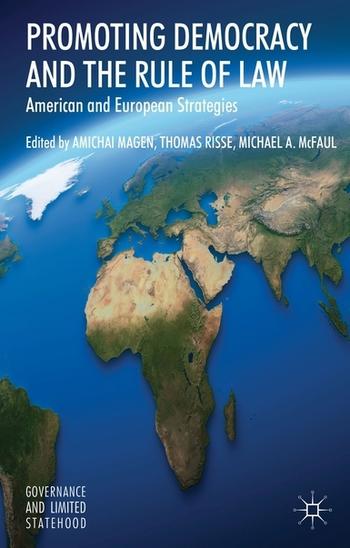Venus Approaching Mars? The European Union's Approaches to Democracy Promotion in Comparative Perspective
Tanja A. Börzel, Thomas Risse – 2009
With the end of the Cold War, democracy promotion has been mainstreamed into the development strategies of international organizations such as the UN or the World Bank, but also of individual Western states such as the United States, or the Federal Republic of Germany. The EU is no exception. In fact, the EU has been among the first of any Western state or international organization to write human rights, democracy and the rule of war into its agreements with external partners. The Lomé IV agreement of 1989 between the EU and the so-called ACP countries (African, Caribbean and Pacific Group, mostly former colonies of Great Britain, France and Belgium) was the first multilateral development agreement to include political conditionality. Ten years later, in 1999, the EU adopted the European Initiative for Development and Human Rights (EIDHR) as a comprehensive strategy ‘in support of democratization, the strengthening of the rule of law and the development of a pluralist and democratic civil society’ (EIDHR 976/1999, preamble).

